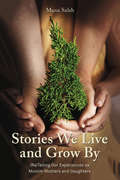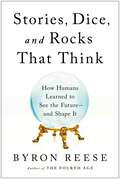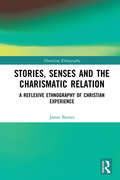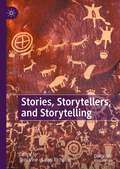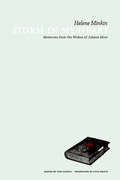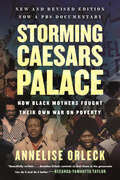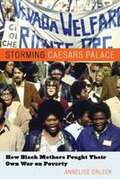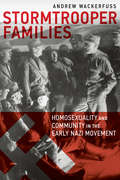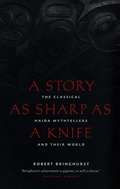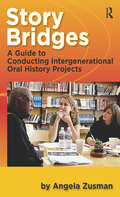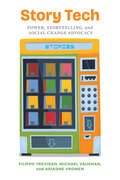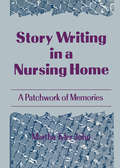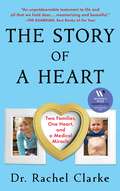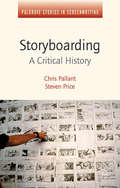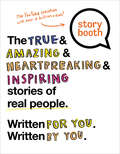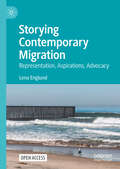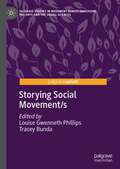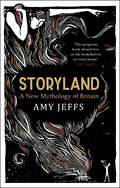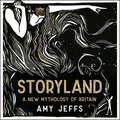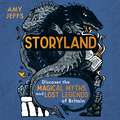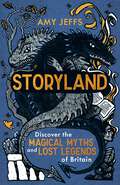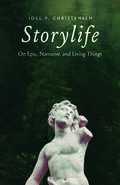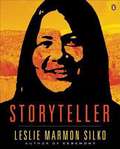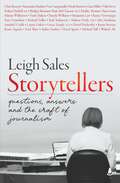- Table View
- List View
Stories we live and grow by: Muslim Mothers And Daughters
by Muna SalehInterweaving my experiences as a Canadian Muslim woman, mother, (grand)daughter, educator, and scholar throughout this work, I write about living and narratively inquiring (Clandinin and Connelly, Narrative Inquiry; Clandinin) alongside three Muslim mothers and daughters during our daughters’ transition into adolescence. I was interested in mother-and-daughter experiences during this time of life transition because my eldest daughter, Malak, was in the midst of transitioning into adolescence as I embarked upon my doctoral research. I had many wonders about Malak’s experiences, my experiences as a mother, and the experiences of other Muslim daughters and mothers in the midst of similar life transitions. I wondered about how dominant narratives from within and across Muslim and other communities in Canada shape our lives and experiences. For, while we are often storied as victims of various oppressions in media, literature, and elsewhere, little is known about our diverse experiences—par-ticularly the experiences of Muslim mothers and daughters composing our selves and lives alongside one another in familial places.
Stories, Dice, and Rocks That Think: How Humans Learned to See the Future--and Shape It
by Byron Reese"Byron Reese gets to the heart of what makes humans different from all others." —Midwest Book Review What makes the human mind so unique? And how did we get this way? This fascinating tale explores the three leaps in our history that made us what we are—and will change how you think about our future. Look around. Clearly, we humans are radically different from the other creatures on this planet. But why? Where are the Bronze Age beavers? The Iron Age iguanas? In Stories, Dice, and Rocks That Think, Byron Reese argues that we owe our special status to our ability to imagine the future and recall the past, escaping the perpetual present that all other living creatures are trapped in. Envisioning human history as the development of a societal superorganism he names Agora, Reese shows us how this escape enabled us to share knowledge on an unprecedented scale, and predict—and eventually master—the future. Thoughtful, witty, and compulsively readable, Reese unravels our history as an intelligent species in three acts: Act I: Ancient humans undergo &“the awakening,&” developing the cognitive ability to mentally time-travel using language Act II: In 17th century France, the mathematical framework known as 'probability theory' is born—a science for seeing into the future that we used to build the modern world Act III: Beginning with the invention of the computer chip, humanity creates machines to gaze into the future with even more precision, overcoming the limits of our brains A fresh new look at the history and destiny of humanity, readers will come away from Stories, Dice, and Rocks that Think with a new understanding of what they are—not just another animal, but a creature with a mastery of time itself.
Stories, Senses and the Charismatic Relation: A Reflexive Ethnography of Christian Experience (Theorizing Ethnography)
by Jamie BarnesStories, Senses and the Charismatic Relation offers a uniquely intimate and auto-ethnographic exploration of Christian experience, rendering a deep, phenomenological account of how devotional worlds become real – how they are experienced, shaped, constituted and performed by those who live them. The book starts from a reflexive exploration of the author’s own experiences of the divine, considers the spiritual journeys of family members and the ‘spiritual community’ of which he was a part, and draws on ethnographic fieldwork in the southern Balkans where that community was based. Jamie Barnes considers three main elements: firstly, the role that sensory aspects of experience play in constituting one’s lived world and one’s ideas about the kinds of beings inhabiting it; secondly, how stories and metaphors are tactically employed, not only in the process of expressing aspects of past experience, but also in shaping and forming both desired worlds and future pathways; thirdly, how such sensed, narrated and lived worlds are tentatively held together - in hope, trust and love – through charismatic relationships of devotion with a divine Other. This unusual and innovative ethnography offers a unique and reflexive view from within the world of Christian experience.
Stories, Storytellers, and Storytelling
by Tom Vine Sarah RichardsThis book advances social scientific interest in a field long dominated by the humanities: stories, and storytelling. Stories are a whole lot more than entertainment; oral narratives, novels, films and immersive video games all form part of the sociocultural discourses which we are enmeshed in, and use to co-construct our beliefs about the world around us. Young children use them to learn about the world beyond their immediate sensory experience and, even in an era of interactive electronic media, the bedtime story remains a cherished part of most children’s daily routine. Storytelling is thus the first abstract formal learning method we encounter as human beings. It is also probably transcultural; perhaps even an immanent part of the human condition. Narratives are, at heart, sequences of events and presuppose and reinforce particular cause-and-effect relationships. Inevitably, they also construct unconscious biases, prejudices, and discriminatory attitudes. Storying (a term we use in this book to encompass stories, storytellers and storytelling) is complex, and this book seeks to make sense of it.
Storm in My Heart
by Helene MinkinPartner of one of the most infamous anarchists of her time, Johann Most, Helene Minkin joined the anarchist movement after emigrating from Russia in 1888 with her father and sister. Framed as a reaction and corrective to Emma Goldman's Living My Life, Minkin's memoir provides a unique account of turn-of-the-century anarchism and immigrant life in the United States. Published in the Yiddish-language newspaper Forverts in 1932, this is its first English translation. Tom Goyens teaches American history at Salisbury University in Maryland. He is the author of Beer and Revolution: The German Anarchist Movement in New York City, 1880–1914.
Storming Caesars Palace REVISED & UPDATED: How Black Mothers Fought Their Own War on Poverty
by Annelise OrleckThe inspiration for the PBS documentary premiering March 2023The story of the revolutionary Black women welfare organizers of Las Vegas who spearheaded an evergreen, radical revisioning of American economic justiceThis timely reissue tells the little-known story of a pioneering group of Black mothers who built one of this country's most successful antipoverty programs.In Storming Caesars Palace, Annelise Orleck brings into focus the hidden figures of a trailblazing movement who proved that poor mothers are the real experts on poverty, providing job training, libraries, medical access, daycare centers and housing to the poor in Las Vegas throughout the 1970s. Orleck introduces Ruby Duncan, a sharecropper turned White House advisor who led the charge on the long war on poverty waged against the poor Black mothers of Las Vegas. According to Ruby, " Poor women must dream their highest dreams and never stop," and she with the help of Mary Wesley and Alversa Beals, did exactly that.A vivid retelling of an overlooked American history, Orleck follows the Black women who went on to lead a revolutionary movement against welfare injustice. These women eventually founded Operation Life, one of the first women-led community organizations in the nation and one of the country&’s most successful antipoverty programs. They went on to gain national traction and garnered the respect of key political figures such as Ted Kennedy and Jimmy Carter.With a new prologue and epilogue that explore the race and labor movements paramount to the political climate of 2021, Orleck masterfully blends together history, social analysis, and personal storytelling in a story that is as enraging as it is empowering.
Storming Caesars Palace: How Black Mothers Fought Their Own War on Poverty
by Annelise OrleckIn Storming Caesars Palace, historian Annelise Orleck tells the compelling story of how a group of welfare mothers built one of this country's most successful antipoverty programs. Declaring "We can do it and do it better," these women proved that poor mothers are the real experts on poverty. In 1972 they founded Operation Life, which was responsible for many firsts for the poor in Las Vegas-the first library, medical center, daycare center, job training, and senior citizen housing. By the late 1970s, Operation Life was bringing millions of dollars into the community. These women became influential in Washington, DC-respected and listened to by political heavyweights such as Daniel Patrick Moynihan, Ted Kennedy, and Jimmy Carter. Though they lost their funding with the country's move toward conservatism in the 1980s, their struggles and phenomenal triumphs still stand as a critical lesson about what can be achieved when those on welfare chart their own course.
Stormtrooper Families: Homosexuality and Community in the Early Nazi Movement
by Andrew WackerfussBased on extensive archival work, Stormtrooper Families combines stormtrooper personnel records, Nazi Party autobiographies, published and unpublished memoirs, personal letters, court records, and police-surveillance records to paint a picture of the stormtrooper movement as an organic product of its local community, its web of interpersonal relationships, and its intensely emotional internal struggles. Extensive analysis of Nazi-era media across the political spectrum shows how the public debate over homosexuality proved just as important to political outcomes as did the actual presence of homosexuals in fascist and antifascist politics.As children in the late-imperial period, the stormtroopers witnessed the first German debates over homosexuality and political life. As young adults, they verbally and physically battled over these definitions, bringing conflicts over homosexuality and masculinity into the center of Weimar Germany's most important political debates. Stormtrooper Families chronicles the stormtroopers' personal, political, and sexual struggles to explain not only how individual gay men existed within the Nazi movement but also how the public meaning of homosexuality affected fascist and antifascist politics—a public controversy still alive today.
Story As Sharp As A Knife: The Classical Haida Mythtellers And Their World
by Robert BringhurstThe Haida world is a misty archipelago a hundred stormy miles off the coasts of British Columbia and Alaska. For a thousand years and more before the Europeans came, a great culture flourished in these islands. The masterworks of classical Haida sculpture, now enshrined in many of the world's great museums, range from exquisite tiny amulets to magnificent huge housepoles. Classical Haida literature is every bit as various and fine. It extends from tiny jewels crafted by master songmakers to elaborate mythic cycles lasting many hours. The linguist and ethnographer John Swanton took dictation from the last great Haida-speaking storytellers, poets and historians from the fall of 1900 through the summer of 1901. His Haida hosts and colleagues had been raised in a wholly oral world where the mythic and the personal interpenetrate completely. They joined forces with their visitor, consciously creating a great treasury of Haida oral literature in written form. Poet and linguist Robert Bringhurst has worked for many years with these century-old manuscripts, which have waited until now for the broad recognition they deserve. Bringhurst brings these works to life in the English language and sets them in a context just as rich as the stories themselves--one that reaches out to dozens of Native American oral literatures, and to mythtelling traditions around the globe. The world of classical Haida literature is a world as deep as the ocean, as close as the heart and as elusive as the Raven, whose unrepentant laugh persists within it all. This is a tradition brimming with profundity, hilariy and love. It belongs where Bringhurst sees it: among the great traditions of the world. Bringhurst, an acclaimed typographer and book designer, will be redesigning this edition in a beautiful new package.
Story Bridges: A Guide for Conducting Intergenerational Oral History Projects (Practicing Oral History #1)
by Angela ZusmanAngela Zusman offers an informative guidebook with step-by-step directions for planning and implementing intergenerational oral history projects, using youth to interview elders. An expert on these programs, Zusman uses her experiences and those of other oral historians to show how community projects are organized, youthful historians located and trained, interviews conducted, and the project archived for future community needs. Included are a variety of sample documents and case studies designed to ease the process for the uninitiated.
Story Tech: Power, Storytelling, and Social Change Advocacy
by Ariadne Vromen Michael Vaughan Filippo TrevisanPersonal stories have the power to stir the heart, compel us to act, and spark social change. While advocacy organizations have long used storytelling in campaigns, the role technology plays has increased. Today, invitations to “share your story” are widespread on advocacy organizations and political campaign websites, calls to action, and social media pages. But what happens after one clicks “share”? And how does this affect which voices we hear—and which we don’t—in public discourse? Story Tech explores the increasingly influential impact of technologies—such as databases, algorithms, and digital story banks—that are usually invisible to the public. It shows that hidden “story tech” enables political organizations to treat stories as data that can be queried for storylines and used to intervene in news and information cycles in real time. In particular, the authors review successful story-centered campaigns that helped change dominant narratives on disability rights, marriage equality, and essential workers’ rights in the United States and Australia. They compare the use of storytelling advocacy across different types of organizations including volunteer grassroots groups, large national advocacy coalitions, and trade unions, and examine how trends differ for storytellers, organizers, and their technology partners. As political stories shift to being “on demand,” they reshape power relationships in key public debates in ways that produce moments of tension as well as positive narrative change. Story Tech examines these trends and illustrates how storytelling success can—and should—be achieved in conjunction with personal dignity, privacy, and empowerment for storytellers and their communities, particularly marginalized ones.
Story Writing in a Nursing Home: A Patchwork of Memories
by Martha A JohnBased on the belief that older people have good stories to tell, Story Writing in a Nursing Home was developed as part of a volunteer teaching service to a nursing home. Graduate students who were learning to teach this special population conducted story writing activities with older adults and found that even the frail elderly who are confined to nursing centers provided a unique perspective about events that emphasize the lasting verities in life. The idea of a patchwork was derived from one of the lessons taught and was suggested by one of the older participants who said, “We’re sort of like a patchwork quilt.” The information, memories, and humor the elderly see in situations is worth recording. In addition, Story Writing in a Nursing Home emphasizes the way to develop the mental stimulation that is so important for physical well being. This sensitive and insightful book provides a lesson plan outline and the type of content that was used as an example. It also provides a running commentary in the form of a diary that tells how to begin a teaching program for nursing center residents. Students and professionals interested in implementing a similar program can use these ideas for planning and for organizing the use of student help to better serve the population. Fascinating reading, this book includes stories by frail elderly people, lesson plans, tips on working with administrators in a nursing center, and reasons for providing instruction. Teachers, volunteers, librarians, gerontology/sociology students, and others concerned with the well-being of the elderly will refer often to this instructive volume.
Story of a Heart: Two Families, One Heart, and the Medical Miracle that Saved a Child's Life
by Rachel ClarkeA riveting and inspiring true story of two families linked by one heart—written by a bestselling author and palliative care doctor. The first of our organs to form and the last to die, the heart is both a simple pump and the symbol of what makes us human; as long as it continues to beat, there is hope. In The Story of a Heart, Dr. Rachel Clarke interweaves the history of medical innovations behind transplant surgery with the story of two children—one of whom desperately needs a new heart. One summer day, nine-year-old Keira Ball was in a terrible car accident and suffered catastrophic brain injuries. As the rest of her body began to shut down, her heart continued to beat. In an act of extraordinary generosity, Keira&’s parents and siblings immediately agreed that she would have wanted to be an organ donor. Meanwhile nine-year-old Max Johnson had been in a hospital for nearly a year, valiantly fighting the virus that was causing his young heart to fail. When Max&’s parents received the call they had been hoping for, they knew it came at a terrible cost to another family—in what Clarke calls &“the brutal arithmetic of transplant surgery.&” The act of Keira&’s heart resuming its rhythm inside Max&’s body was a medical miracle. But this was only part of the story. While waiting on the transplant list, Max had become the hopeful face of a campaign to change the UK&’s laws around organ donation. Following his successful surgery, Keira&’s mother saw the little boy beaming on the front page of the newspaper and knew it was the same boy whose parents had recently sent her an anonymous letter overflowing with gratitude for her daughter&’s heart. The two mothers began to exchange messages and eventually decided to meet. This is the unforgettable story of how one family&’s grief transformed into a lifesaving gift. Clarke relates the urgent journey of Keira&’s heart and explores the history of the remarkable surgery that made it possible, stretching back over a century and involving the knowledge and dedication not just of surgeons but of countless nurses and technicians, immunologists and paramedics. The Story of a Heart is a testament to compassion for the dying, the many ways we honor our loved ones, and the tenacity of love.
Storyboarding: A Critical History (Palgrave Studies in Screenwriting)
by Steven Price Chris PallantThis study provides the first book-length critical history of storyboarding, from the birth of cinema to the present day and beyond. It discusses the role of storyboarding in key films including Gone with the Wind , Psycho and The Empire Strikes Back , and is illustrated with a wide range of images.
Storybooth
by Storybooth“Compelling . . . important . . . Be sure to leave this out where kids can find it.” –Booklist “Their powerful stories, along with the compelling animation, help build empathy and respect for differences—key components in the fight against hate.” -Deborah Lauter, Executive Director, NYC Office for the Prevention of Hate Crimes, 2019-22. “Storybooth reminds us that authentic, youth-curated, real world narratives are incredibly resonant and can move our nation to act! “ - Michael H Levine, PhD, SVP, NickelodeonFrom Storybooth—the YouTube storytelling sensation with over five million subscribers—comes a full-color, illustrated compilation of never-before-seen and classic stories that combine the compelling storytelling of Humans of New York, the affirming tone of Chicken Soup for the Teenage Soul, and the “you can” attitude of The Confidence Code for Girls. Everyone has a story.These are ours.Each one of these tales connects you to someone you never knew. A real person, sharing their lived experience. Exciting, inspirational, heartwrenching, uplifting, humorous, devastating, thought-provoking—TRUE.Storybooth illustrates for readers that no matter what is happening in their world, they are not alone.Real stories submitted by real people, Storybooth allows each contributor to speak for themselves about their experiences, imparting a myriad of raw, achingly honest, and deeply soulful truths with the power to touch each and every individual reader.
Storying Contemporary Migration: Representation, Aspirations, Advocacy
by Lena EnglundThis book examines contemporary stories of migration belonging to multiple literary genres such as nonfiction, memoir, novel, and essay, and explores the futures they envision for migrants and their surrounding societies. The primary material ranges from personal experiences of migration for professional purposes and of being undocumented without access to citizenship, to novels that provide fictional representations of migrants and their complex lives. This study asks how migration, as portrayed in contemporary writing, addresses personal, social, and political consequences of being on the move. The book is organised around central themes such as the status of being undocumented, or aspirations and expectations of both migrants themselves as well as their new environs. The material examined has been published from 2016 onwards, addressing the aftermath of the migrant crisis 2015-2016 as well as the Trump administration 2017-2021.
Storying Social Movement/s (Palgrave Studies in Movement across Education, the Arts and the Social Sciences)
by Tracey Bunda Louise Gwenneth PhillipsThis book stories social movements on the margins. Foregrounding historically silenced, dismissed and ignored Aboriginal, young, voiceless, and intersex Australian activists, the book theorizes how movement away from exclusionary praxis at the margins can offer renewed hope. Using diverse and creative forms of research underpinned by storying, social movement and critical race theoretical knowledge with a commitment to social justice, this book will be of interest and value to scholars of cultural studies, Indigenous studies, education, human geography, political sciences, and sociology.
Storyland: A New Mythology of Britain
by Amy JeffsSoaked in mist and old magic, Storyland is a new illustrated mythology of Britain, set in its wildest landscapes.It begins between the Creation and Noah's Flood, follows the footsteps of the earliest generation of giants from an age when the children of Cain and the progeny of fallen angels walked the earth, to the founding of Britain, England, Wales and Scotland, the birth of Christ, the wars between Britons, Saxons and Vikings, and closes with the arrival of the Normans.These are retellings of medieval tales of legend, landscape and the yearning to belong, inhabited with characters now half-remembered: Brutus, Albina, Scota, Arthur and Bladud among them. Told with narrative flair, embellished in stunning artworks and glossed with a rich and erudite commentary. We visit beautiful, sacred places that include prehistoric monuments like Stonehenge and Wayland's Smithy, spanning the length of Britain from the archipelago of Orkney to as far south as Cornwall; mountains and lakes such as Snowdon and Loch Etive and rivers including the Ness, the Soar and the story-silted Thames in a vivid, beautiful tale of our land steeped in myth. It Illuminates a collective memory that still informs the identity and political ambition of these places.In Storyland, Jeffs reimagines these myths of homeland, exile and migration, kinship, loyalty, betrayal, love and loss in a landscape brimming with wonder.
Storyland: A New Mythology of Britain
by Amy JeffsA TIMES HISTORICAL FICTION BOOK OF THE YEAR SHORTLISTED FOR WATERSTONES BOOK OF THE YEAR Soaked in mist and old magic, Storyland is a new illustrated mythology of Britain, set in its wildest landscapes.It begins between the Creation and Noah's Flood, follows the footsteps of the earliest generation of giants from an age when the children of Cain and the progeny of fallen angels walked the earth, to the founding of Britain, England, Wales and Scotland, the birth of Christ, the wars between Britons, Saxons and Vikings, and closes with the arrival of the Normans.These are retellings of medieval tales of legend, landscape and the yearning to belong, inhabited with characters now half-remembered: Brutus, Albina, Scota, Arthur and Bladud among them. Told with narrative flair, embellished in stunning artworks and glossed with a rich and erudite commentary. We visit beautiful, sacred places that include prehistoric monuments like Stonehenge and Wayland's Smithy, spanning the length of Britain from the archipelago of Orkney to as far south as Cornwall; mountains and lakes such as Snowdon and Loch Etive and rivers including the Ness, the Soar and the story-silted Thames in a vivid, beautiful tale of our land steeped in myth. It Illuminates a collective memory that still informs the identity and political ambition of these places.In Storyland, Jeffs reimagines these myths of homeland, exile and migration, kinship, loyalty, betrayal, love and loss in a landscape brimming with wonder.
Storyland: A New Mythology of Britain
by Amy JeffsSoaked in mist and old magic, Storyland tells a history of Britain and the politics of its people through medieval eyes. Grounded in research, related as fiction, it begins before the Great Flood, with a troop of African giants quarrying stones. Later, the first migrants enter the Atlantic, calling themselves the Scoti and Britons, followed by the English and the Normans, crossing the North Sea. Storyland is ancient Britain as you have never seen it before, mediated by the modern aesthetic of its linocut illustrations. It is filled with places we know today and characters half-remembered: Lear in Leicester, Merlin in Stonehenge, Grim in Grimsby, St Columba on the River Ness. Storyland is a tale of legend, landscape and the yearning to belong.(P)2021 Quercus Editions Limited
Storyland: Discover the magical myths and lost legends of Britain - Children's Edition
by Amy JeffsIMMERSE YOURSELF IN MIST AND MAGIC AND DISCOVER HEROES AND MONSTERS RIGHT ON YOUR DOORSTEP.... You will have heard of Thor, Medusa and Hercules. But what about the myths of the British landscape? The Trojan heroes who wrestled giants. The Syrian sisters who found refuge on our lands. The dragons who slept in hollow hills. And the kings who communed with the dead... In this vivid mythology of Britain, children will discover enchanting tales of magic and adventure, giants and demons, princesses and prophecies.Travelling across the wildest of landscapes - as far north as Orkney and south as Cornwall, young listeners will be transported to sacred sites like Stonehenge, they will climb the mountains of Snowdon, dive into the Lochs of Scotland, and sail down the rivers of Britain, discovering a land steeped in myth, monsters and heroes.Adapted from Amy Jeffs' bestselling Storyland, this is a definitive and dynamic children's introduction to Britain's lost myth and legends.(P) 2023 Hodder & Stoughton Limited
Storyland: Discover the magical myths and lost legends of Britain - Children's Edition
by Amy JeffsIMMERSE YOURSELF IN MIST AND MAGIC AND DISCOVER HEROES AND MONSTERS RIGHT ON YOUR DOORSTEP . . .You will have heard of Thor, Medusa and Hercules. But what about the myths of the British landscape? The Trojan heroes who wrestled giants. The Syrian sisters who found refuge on our lands. The dragons who slept in hollow hills. And the kings who communed with the dead . . .In this vivid and beautifully illustrated mythology of Britain, children will discover enchanting tales of magic and adventure, giants and demons, princesses and prophecies.Travelling across the wildest of landscapes - as far north as Orkney and south as Cornwall - young readers will build Stonehenge with the young Merlin, chase hounds up the mountains of Wales, ride stags into the forests of Scotland and sail with Trojans along the rivers of Britain, discovering a land steeped in myth, monsters and heroes.Adapted from Amy Jeffs' beautiful and bestselling Storyland, this is a definitive and dynamic children's introduction to Britain's lost myths and legends.
Storylife: On Epic, Narrative, and Living Things
by Joel P. ChristensenFrom Homer’s epics to mainstream news, stories have lives of their own—and humans may not always control the narratives we create Combining ancient epic and myth with analogies from biology and the natural world, Joel P. Christensen explores the creative process and how narratives develop. This bold work urges readers to treat narratives as living things with their own agency in the world. Christensen starts by using Homeric epic to explore the way language and meaning develop alongside audiences in complex ecosystems and then moves through storytelling in the ancient Mediterranean over a thousand years. In this study, which ranges from the evolution of narratives to viral ideas, and to the dangerous side of stories in mass shootings and war, we see how narratives function as independent entities with consequences that cause lasting harm. Connecting his argument to the present day, Christensen addresses contemporary cultural panics, including AI and ChatGPT, “post-truth” or alt-facts in the digital age, and free speech and cancel culture. Storylife invites readers to rethink human creativity, the importance of collective actions, and the lives we build together with and against narrative. In an age rife with misinformation, it is time to reconsider how much control we have over stories and how to educate ourselves once we acknowledge the power that narrative exerts over us.
Storyteller
by Leslie Marmon SilkoNow back in print—a classic work of Native American literature by the bestselling author of Ceremony Leslie Marmon Silko's groundbreaking book Storyteller, first published in 1981, blends original short stories and poetry influenced by the traditional oral tales that she heard growing up on the Laguna Pueblo in New Mexico with autobiographical passages, folktales, family memories, and photographs. As she mixes traditional and Western literary genres, Silko examines themes of memory, alienation, power, and identity; communicates Native American notions regarding time, nature, and spirituality; and explores how stories and storytelling shape people and communities. Storyteller illustrates how one can frame collective cultural identity in contemporary literary forms, as well as illuminates the importance of myth, oral tradition, and ritual in Silko's own work. This edition includes a new introduction by Silko and previously unpublished photographs. .
Storytellers: Questions, Answers and the Craft of Journalism
by Leigh SalesHighly respected ABC anchor, bestselling author and hit podcaster Leigh Sales interviews the cream of Australian journalists about their craft – how (and why) they bring us the stories that inform our lives. Leigh Sales is one of Australia&’s most accomplished journalists, having anchored the ABC&’s flagship 7.30 program for twelve years. She has been a foreign correspondent, hosted Lateline and anchored numerous elections for the ABC. In this book, she turns her interviewing skills onto her own profession, those usually asking the questions: the journalists. In ten sections – from News Reporting to Editing, via Investigative, Commentary and of course Interviewing – Sales takes us on a tour of the profession, letting the leaders in their field talk direct to us about how they get their leads, survive in war zones, write a profile, tell a story with pictures, and keep the show on the road. A who&’s-who of Australian journalism – including Lisa Millar, Kate McClymont, Hedley Thomas, Trent Dalton, Benjamin Law, Tracy Grimshaw, Richard Fidler, David Speers, Stan Grant, Niki Savva, Waleed Aly, Annabel Crabb, Karl Stefanovic and Mia Freedman – talk candidly about their greatest lessons and their trade secrets. A fascinating insight into a vital and much-misunderstood profession, Storytellers is a book for anyone who&’s ever wanted to be a journalist, or even just wondered how the news gets made.
